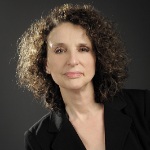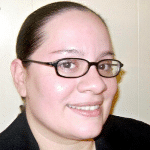Therapists in Boston, MA and Nearby Locations
Find a therapist in Boston, Massachusetts that meets your needs. Browse our comprehensive list of affordable and licensed therapists in Boston to find a professional specializing in counseling people with stress, anxiety, depression, relationship issues, grief, and more
We may receive fees from the providers listed below. See our full disclaimer.
Finding Mental Health Resources in Boston
Mental Health is defined by the World Health Organization (WHO) as “a state of well-being in which every individual realizes his or her potential, can cope with the normal stresses of life, can work productively and fruitfully, and can contribute to his or her community”. Education about the availability of mental health support and treatments is one the strongest instruments in prevention, stability, and healing to the ideal results of living at our best potential. This website is one of those tools in guide you to the best resources in the Boston area and information to assist you in making a transition into wellness.
Boston, Massachusetts is one of the oldest cities in the United States. The city is well-known for its advancements in education and diverse culture, attracting more than 20 million visitors a year. Diversity continues to increase as multinational cultures move to reside there. Academia contributes to Boston being the 6th largest economy in the U.S. and 12th globally. Boston, Massachusetts is about 90 square miles and more than 2,300 acres of it are clean, safe, and accessible spaces of parkland. Boston has an estimated population of approximately 700,000 residents. The median household income is approximately $52,000. Boston has so much to offer its residents and their neighborhoods. However, there are still demographic issues that can weigh on an individual.
City Concerns
Boston has one of the highest costs of living and 21% of the area lives below the poverty determinations. Although the minimum wage was increased to $15.00 per hour on July 4, 2018, in the “Grand Bargain” bill, the legislature removed the time-and-a-half pay for Sundays and holiday shifts for all retail workers.
Boston is a highly diverse community and there are assorted health concerns and consequences for each ethnic group that come with that. Although it has improved, non-white individuals are still detrimentally impacted by poorer health outcomes. Alcohol is the most misused drug in the area and the rate of hospital visits due to substance use abuse has increased, including an exponential increase in opioid use.
The Effects of Stress
Approximately 22% of people in Boston report that they suffer from incessant anxiety and 12% from persistent states of sadness. The numbers have increased over the past few years. Financial difficulties, family pressures, and discrimination could have detrimental effects on an individual’s mental health. Chronic stress and consistent challenges release stress hormones and contribute to a “fight or flight” takeover. This can lead to a persistent depression. The highest reports of persistent sadness were among Black and Latino adults, women, the unemployed, low-income adults, and lesbian, gay, and bisexual individuals.
The city has one of the largest LGBT groups of residents in the U.S. LGBT individuals are twice as likely to experience a mental health condition, such as depression or anxiety, and half of them report that they have considered suicide. They still experience discrimination, job discrimination, homelessness, and food insecurity.
Divorce rates in the Boston area have risen from 17% in 1960 to 47% in 2015, which is mostly in alignment with the present rates throughout the U.S. Currently, Massachusetts’ children are three times more at risk of living through this painful experience than children two generations ago. The number of children who grew up without a father increased in the same year and one-third lived without both biological parents. This leads to poverty, intergenerational poverty, higher school dropout rates, job insecurity due to lack of skills and education, criminal activity, and an increase in teen pregnancy.
Getting Help
Residents in Boston are fortunate that there are some of the best hospitals and medical staff in the country. In 2014, Mental Health America (MHA) found the city to be the 2nd in the nation to have good access to care. However, it can be overwhelming when trying to find a professional for your mental health concerns. The first step in your journey is to make a list of your needs and goals.
Are you experiencing symptoms, such as depression or anxiety? What other symptoms are you having?
Did your discomfort lead to alcohol or substance abuse?
Are you having marital or relationship issues?
What traits and specialties of the therapist are most important to you?
What kind of commitment can you make to your treatment, in terms of time and money?
Considering the “success” of your treatment, what would that look like? What would you like to get out of therapy?
What does your insurance cover in terms of mental health treatment? Do you need a sliding scale?
Do you prefer in-person therapy or via video?
The number of therapists in Suffolk County is approximately 846 private psychologists, therapists, counselors, and clinical social workers. There are approximately 57 private psychiatrists, psychiatric nurses, and psychiatric nurse practitioners. The county has 94 private treatment centers.
Mental Health Non-Profit Organizations and Clinics
North Suffolk Mental Health Association (NSMHA) provides support and services to those who are experiencing serious and persistent mental health symptoms. They are donation-supported and work with approximately 450 people in Boston for their caseload. They combine services with integrated teams and have four clinic locations.
The Brookline Community Mental Health Center provides services to children, and adults, and has an outreach homeless program. They provide numerous mental health services, including crisis intervention, and offer 10,000 free or reduced fees services per year.
The Community Legal Services and Counseling Center offers psychotherapy and job coaching services for approximately $5.00 per visit. In addition, they offer legal services via volunteer attorneys and immigrant, disability, and domestic violence support to assist those suffering from these circumstances. Basic human needs support is another support service offered.
Maria Droste Counseling Services offers services on a sliding scale for mental health and substance abuse issues. Holistic counseling is also available.
Crisis Support
Samaritans is a free crisis hotline. Without judgment and with confidentiality, the hotline is available 24 hours a day for anyone considering suicide or lost someone due to suicide. They can be contacted by phone call or through text messages.
LGBTQ+ Community Mental Health and Overall Health Organizations
The Boston Alliance of Lesbian Gay Bisexual Transgender Queer Youth (BAGLY) offers support, advocacy, and clinic services.
Fenway Health provides services such as Primary Care, behavioral health, Psychology, Psychiatry, Addiction, and HIV/ AIDS support for the LGBTQ+ community. They have three separate locations within Boston.
Cambridge, MA has support for youth poverty and homelessness through Y2Y Harvard Square. This non-profit offers a safe shelter, advocacy for the cause, and resource connections such as legal services, career preparation, and mental health care.
- Attleboro
- Brockton
- Cambridge
- Chicopee
- Fall River
- Lawrence
- Lowell
- Lynn
- Malden
- Medford
- New Bedford
- Newton
- North Attleboro
- Plainville
- Quincy
- Somerville
- Springfield
- Taunton
- Waltham
- Weymouth Town























